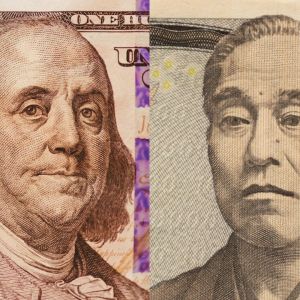Trump wants a stronger yen in trade negotiations with Japan, and that’s dangerous for both sides
3 min read
President Donald Trump is pushing hard for a stronger yen in trade talks with Japan, and the demand has already jammed itself into a negotiation that was supposed to be about tariffs. The meeting began on Wednesday in Washington, where Japan’s economy minister Ryosei Akazawa sat down with US Treasury Secretary Scott Bessent and Trade Representative Jamieson to launch the bilateral discussions. The meeting took a sharp turn when Trump walked in unannounced and demanded that currency policy be addressed directly. This followed his public accusation last month that Japan had been intentionally weakening the yen to gain an unfair edge over US exporters. Kato denies currency manipulation before Washington trip The official agenda had already been shaped by Trump’s White House, which insisted on putting exchange rate manipulation front and center. That was after Trump accused Tokyo of playing dirty with its currency to gain a lopsided trade advantage. Although Akazawa later claimed the yen wasn’t discussed that day, he also said such issues were better suited for a different table—specifically, the one that Finance Minister Katsunobu Kato is headed for next week. Kato is scheduled to fly to Washington for the IMF and World Bank spring meetings, where he may have a separate one-on-one with Bessent. He responded to the currency accusations on Friday while speaking in parliament, directly pushing back against Trump’s claim that Japan weakens its yen on purpose. “Japan does not manipulate the currency market to intentionally weaken the yen, as seen by the fact our latest action was to conduct yen-buying intervention,” Kato said when lawmakers pressed him on Trump’s comments. He acknowledged the US interest in discussing exchange rates but said no date had been set for his possible meeting with Bessent. These bilateral meetings are expected to be the main forum where the US and Japan get into the technical weeds of currency disputes, tucked under the broader umbrella of tariff negotiations. But the very mention of Trump’s demand has already kicked up tension among financial analysts and market watchers. Many of them say any forced change in the yen-dollar balance could blow back on both countries. Some of the risk, they warn , is baked into Japan’s fragile recovery. Forcing the Bank of Japan to raise interest rates faster to boost the yen could crush that recovery and stomp all over the central bank’s independence. Another risky decision would be dumping US dollars to raise the yen’s value. But that would involve Japan cashing out billions from US debt markets right when things are unstable, creating ripple effects neither country can afford. Wall Street watches for dollar devaluation threat Citigroup analysts are already watching the situation closely. In a note this week, Osamu Takashima, a currency strategist at the bank, warned that Japan would likely be a top target if Trump’s administration tries to engineer a global dollar devaluation. That plan, which has been unofficially labeled the “Mar-a-Lago Accord,” would aim to make US goods cheaper overseas. “At this point we do not see a ‘Mar-a-Lago Accord’ as a concrete risk,” Takashima wrote. “However, countries such as Japan, which have sizeable foreign currency reserves and whose currency is undervalued, would tend to be the target in this case.” The yen has already been gaining strength on the back of speculation that the US might pull Japan into a currency realignment plan. Traders and economists believe Trump is looking to shrink the massive US trade deficit, and going after the yen is one way to do it. When Trump spoke in March, he said he had warned both Japan and China not to keep devaluing their currencies. “They could not continue to reduce the value of their currencies, as doing so would be unfair to the United States,” he said at the time. Cryptopolitan Academy: Want to grow your money in 2025? Learn how to do it with DeFi in our upcoming webclass. Save Your Spot

Source: Cryptopolitan



